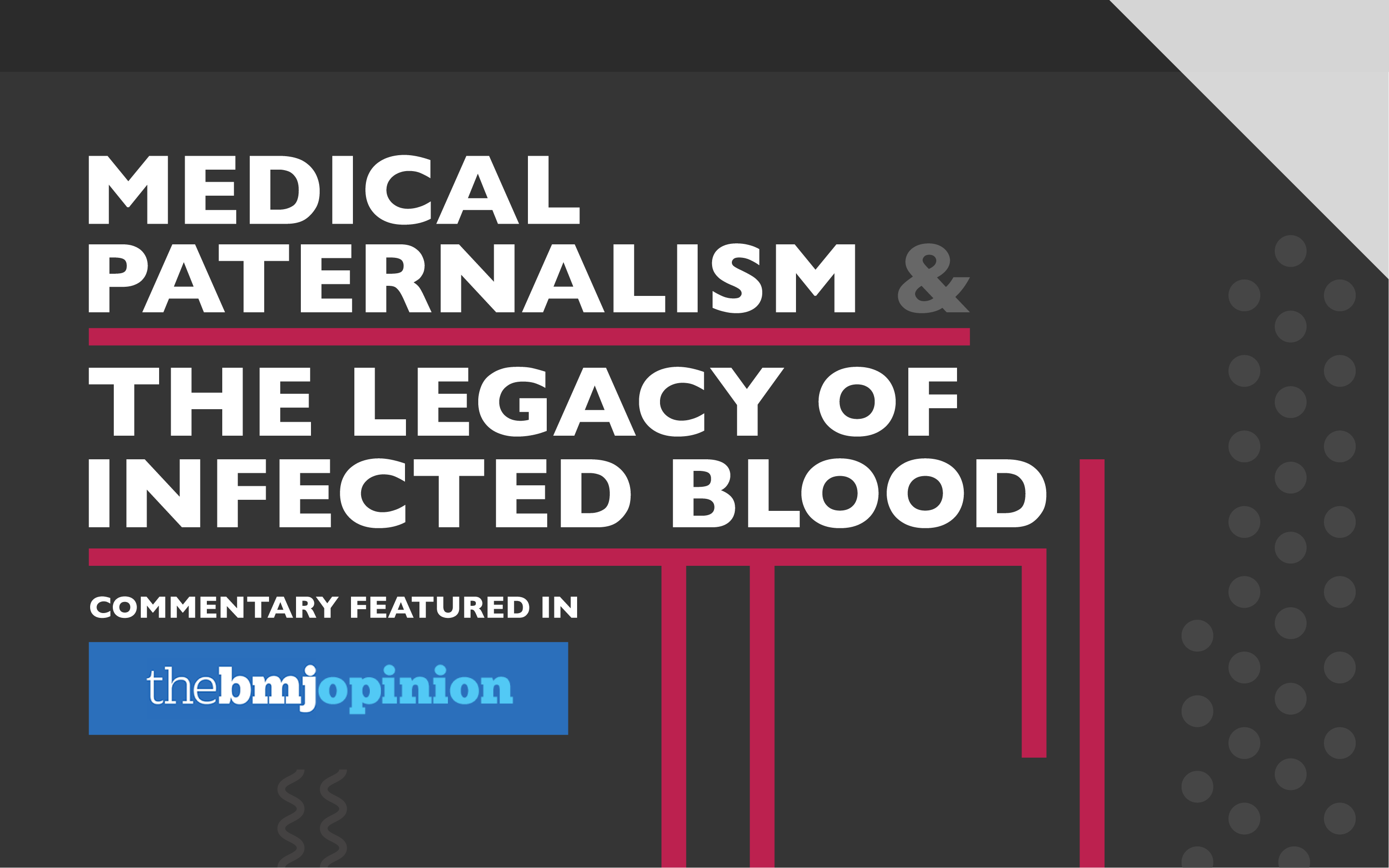In recognition of World Haemophilia Day 2021, we are pleased to have our first commentary published in BMJ Opinion, drawing attention to the practice of medical paternalism against the backdrop of the ongoing Infected Blood Inquiry.
BMJ Opinion provides a platform for debate on topical issues of relevance to its international medical and healthcare readership. The article, written by On The Pulse director, Laurence Woollard, is titled: “The Infected Blood Inquiry is exposing medical paternalism.”
Challenging the ‘doctor knows best’ model
In 2019, we reported on the origins of the Infected Blood Inquiry. Fast forward two years and the oral and documented evidence has pulled into sharp focus the culturally paternalistic, hierarchical, and dominant clinical policies and practices of the time.
It is in this context that we examine how the concept of patient autonomy is playing out today, particularly in the era of digital health, and the physician’s role in tailoring their communication to fit patients’ informational needs.
The following is an excerpt addressing the central clinical function of patient-physician communication:
“Patients are not always aware of the facts of their treatment after consent-related discussions, and the physician-patient communication process has a strong influence on how patients understand, remember, and evaluate information presented to them i.e. the “framing effect”.1
Whilst most physicians recognise that patients have a right to decision-relevant information and to be involved in making important medical decisions, good ethics often requires good communication, and many fail to interact in a way that lead either to true empowerment or to decision making partnership with their patients; barriers such as economic and time pressures contributing to poor communication practices.2“
To read the commentary in full, please click here.
We wish to thank Dr Rich Gorman, a research fellow in bioethics at the Brighton and Sussex Medical School and co-author of our journal article on patient education and gene therapy in haemophilia, for supporting with the preparation and review of this opinion piece. We would also like to acknowledge Emma Doble, Patient Editor at the BMJ, and Juliet Dobson, Editor at the BMJ, for making this opportunity possible.
About BMJ Opinion
BMJ Opinion was launched in 2017 as a “new space for informed debate about facts”.3 It is an online column produced by the BMJ, a high impact, global medical research journal.
The online opinion pieces achieve more than 50,000 page views a month and provide insights and perspectives on the latest developments, research findings and news across a variety of medical specialties.
Keep up to date with the latest from the BMJ by following @bmj_latest.
Contact us
Have any questions or would like to know more? Please get in touch via our contact page (you can refer to our privacy policy statement here).
You can also connect with us on Twitter, Instagram and LinkedIn.
On The Pulse
References
- Chan S, et al. Montgomery and informed consent: where are we now? BMJ 2017;357:j2224. Doi: 10.1136/bmj.j2224
- Ubel PA, et al. Empowerment Failure: How Shortcomings in Physician Communication Unwittingly Undermine Patient Autonomy. Am J Bioeth 2017;17(11):31-9. Doi: 10.1080/15265161.2017.1378753
- Dobson J & Abbasi K. Welcome to BMJ Opinion. BMJ 2017;356:j631. Doi: 10.1136/bmj.j631

